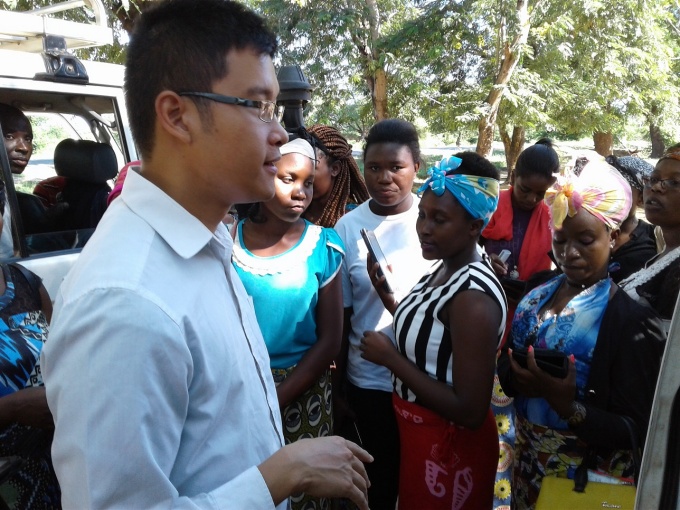Social Norms and Hand Washing Behaviors

Wit Wichaidit briefing data collectors on how to collect data using tablets in Malawi
Wit Wichaidit, Epidemiology PhD alumni, discussed his current research and graduate training as he prepared for a career in global health.
Tell us about your studies, research, and/or interests in global health.
My dissertation research is on the effect of social norms and social norms change on hand washing behaviors. Hand washing prevents infection, but only 19% of the global population wash their hands after using the toilet. Studies in social psychology showed that a lot of what we do is based on the expectations of others. These expectations are called social norms. No study has ever measured social norms on hand washing at the population level, or assessed how norms-changing interventions affects hand washing behaviors.
Why did you choose UB for your doctoral program in Epidemiology?
In my search for PhD programs in epidemiology, I came across UB and the work of my supervisor, Dr. Pavani K. Ram. I had always been interested in global health and Dr. Ram's work focuses on child survival and promotion/improvement of water, sanitation and hygiene in low-income countries, which are key thematic areas of global health. It was a very good match. I was also attracted to the breadth of UB’s curriculum and opportunities available to graduate students.
What are your future academic/career plans?
Good question! The most likely scenario is that I will join my old workplace, the Epidemiology Unit at Prince of Songkla University (PSU) in southern Thailand, as a faculty member. I used to work there as a research assistant when I applied to UB. I've kept in touch with the team there and they're looking for new faculty members. I plan to be back in the U.S. again for a research fellowship or exchange visitor position at some point in the future.
How did you learn about the Office of Global Health Initiatives (OGHI)?
Dr. Ram's research team, The REACH Co-op Lab, has always been heavily involved with OGHI. There are travel grants for students to do global health work overseas and within the Buffalo area. What the work will entail depends on what each student's interests are. OGHI has funded UB students on their travels to South Asian and Sub-Saharan Africa to do global health research work or a practicum in their field of study.
Tell us about the Global Health Club.
The Global Health Club is a UB graduate student interest group that organizes events related to issues in global health. We invite guest speakers who are experts in their field to share their experience and talk about available opportunities. We also aim to support OGHI with their activities, as well as the annual SPHHP Global Health Day symposium. Right now the club is looking for new members to join the executive board positions and continue its activities in 2018-2019.
Tell us about your global experiences; studies, research and service.
I grew up in Thailand and received a master's degree in tropical medicine with a concentration in epidemiology from Mahidol University in Bangkok. For my master's thesis, I did a cross-sectional study on maternal and child health in an area with a high number of undocumented migrants in the Thai-Burmese border areas. I then moved to an armed insurgency area in southern Thailand in 2009 and coordinated a terrorism study project for a year, then got back to doing epidemiology at PSU from 2010-2013. On evenings and weekends, I would volunteer to write grants and do translation/interpretation work to support non-profit organizations that PSU faculty members set up to support the victims of the South Thailand Insurgency. I went to Bangladesh for 10 months in 2011 on a South-South exchange program organized by Fredskorpset Norway, which is the Norwegian version of the Peace Corps. I worked with a medical NGO to help build their research capacity. I joined UB in 2013 and traveled to western Kenya in 2014 to pilot a school hand washing promotion intervention. I went to Malawi in 2017 to support a survey on the state of sanitation in rural villages that received the Global Sanitation Funds intervention program.